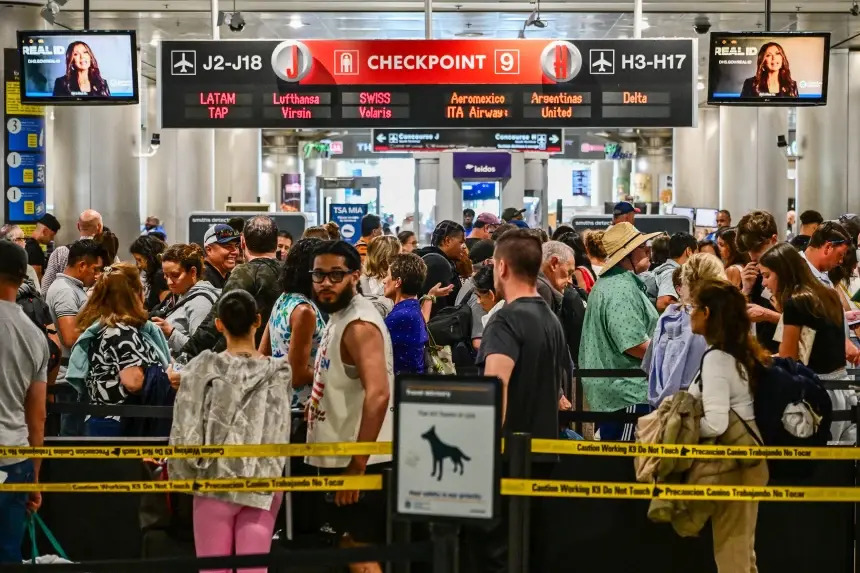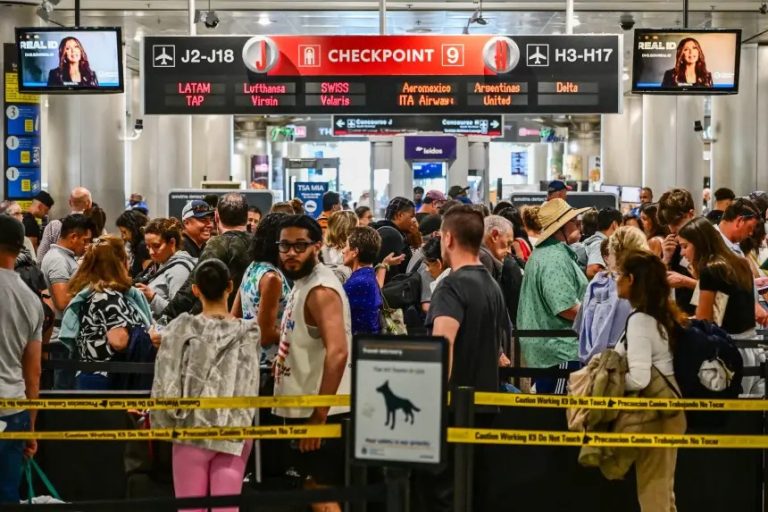Global Reaction Ranges From Shock to Outrage as Trump Reinstates Sweeping Travel Ban
Nations around the world expressed shock and dismay following former President Donald Trump’s announcement of a broad travel ban affecting citizens from a dozen countries, along with the termination of visa programs for seven others. For many, the move felt like a return to 2017 and one of the most divisive policies of Trump’s first term.
On Wednesday, Trump cited national security and terrorism concerns as justification for the renewed restrictions, which primarily target countries in Africa and Asia. The announcement sparked a wide range of responses from leaders in the affected nations—some offering cautious diplomatic reactions, others expressing outright condemnation.
“The reality is that being in the United States poses a risk to anyone, not just Venezuelans,” said Venezuelan Interior Minister Diosdado Cabello during a televised appearance on state media. Reacting to the cancellation of a special visa program for Venezuelans, Cabello denounced the U.S. government as “fascist,” claiming it unfairly targets Venezuelan nationals. “They persecute our people for no reason,” he added.
The executive order impacts a total of 19 countries—some included for the first time—based on criteria the Trump administration claims include excessive visa overstays, insufficient vetting procedures, and associations with terrorism. The sweeping policy has been met with deep concern by human rights advocates and foreign governments alike, who warn it could strain diplomatic ties and disrupt the lives of thousands of innocent travelers.

Trump’s Travel Ban Targets 12 Nations, Sparks Global Concern and Accusations of Discrimination
The United States has imposed a new travel ban on nationals from 12 countries: Afghanistan, Myanmar, Chad, the Republic of Congo, Equatorial Guinea, Eritrea, Haiti, Iran, Libya, Somalia, Sudan, and Yemen. In addition, partial restrictions have been applied to individuals from Burundi, Cuba, Laos, Sierra Leone, Togo, Turkmenistan, and Venezuela.
Many of the countries on the list have Muslim-majority populations. Several of them had just begun observing the Hajj pilgrimage holiday on Wednesday evening, delaying immediate diplomatic responses. U.S. embassies in Libya, Chad, Eritrea, Sudan, and Turkmenistan declined or were unavailable for comment.
Still, the backlash began to emerge. Shawn VanDiver, president of the Afghan refugee advocacy group #AfghanEvac, condemned the decision as “political theater” and described it as “a second Muslim Ban, dressed up in bureaucracy.”
Trump introduced the ban during a video address Wednesday, referencing a recent violent incident in Boulder, Colorado, where an Egyptian man—reportedly seeking asylum on an expired tourist visa—injured over a dozen demonstrators in what authorities described as an antisemitic attack. Although Egypt is not among the countries targeted by the ban, analysts noted its exclusion is telling.
“The fact that Egypt was left off the list despite the Colorado incident reflects its strategic importance to U.S. policy in the Middle East,” said Ahmed Aboudouh, associate fellow at the London-based Chatham House. He added that the ban disproportionately affects conflict-affected or diplomatically weaker countries that are less able to push back. “We’re not seeing the U.S. targeting its key partners in Africa or the Middle East.”
The White House’s decision drew a measured response from the African Union Commission. In a statement issued Thursday, the Commission urged the U.S. to protect its borders in a way that is “balanced, evidence-based, and reflective of the long-standing partnership between the United States and Africa.” It also warned of possible damage to diplomatic relations, saying the ban could “undermine ties that have been carefully nurtured over decades.”

Francois Lochon / Gamma-Rapho via Getty Images file
Criticism Mounts as Trump’s Travel Ban Draws Fire From Aid Groups and Affected Nations
The response from the African Union Commission may have been measured, but it came from a body representing nations already disproportionately impacted by the Trump administration’s broader policies—especially cuts to USAID programs.
International aid organizations were more direct in their condemnation. Amnesty International denounced the travel ban in a post on X (formerly Twitter), calling it “discriminatory, racist, and downright cruel.”
Somalia, one of the countries targeted by the ban, has also faced deep reductions in U.S. assistance, including the withdrawal of American military support used to train local forces against terrorist groups. Still, the Somali government offered a restrained response. “Somalia values its longstanding relationship with the United States and stands ready to engage in dialogue to address the concerns raised,” said Dahir Hassan Abdi, Somalia’s ambassador to the U.S., in an official statement on Wednesday.
The White House justified Somalia’s inclusion in the ban by pointing to national security concerns. “The United States Government has identified Somalia as a terrorist safe haven,” the administration said in a statement. “Terrorists use regions of Somalia as bases to plan, facilitate, and carry out attacks. The Somali government lacks the capacity to effectively restrict their movements.”
However, data suggests the threat from nationals of the banned countries has been minimal. Alex Nowrasteh, vice president for economic and social policy studies at the Cato Institute, noted that between 1975 and the end of 2024, just one fatal terrorist attack on U.S. soil involved a national from any of the 12 countries now under a full ban. That individual, Emanuel Kidega Samson from Sudan, killed one person in a 2017 attack motivated by racial animus. “The annual chance of being killed by a terrorist from one of these countries is about 1 in 13.9 billion,” Nowrasteh wrote.
The executive order also leaves the future uncertain for nearly 200,000 Afghans who relocated to the U.S. following the American withdrawal from Afghanistan in 2021—a chaotic exit that prompted emergency resettlement efforts. Among them are roughly 14,000 refugees who arrived in the past year alone and may now face legal and logistical limbo.

Trump Faces Backlash After Renewed Attacks on Afghan Refugee Process and Developing Nations
On Wednesday, former President Donald Trump renewed his criticism of Afghanistan’s passport authority and its screening and vetting procedures—just as his new executive order suspended refugee resettlement from the country. The move echoes one of his earliest actions in office, when he halted Afghan refugee admissions on his first day.
The Afghan government has yet to respond to requests for comment, including inquiries from NBC News.
“To include Afghanistan—a country whose citizens fought and died alongside American troops for two decades—is a moral disgrace,” said Shawn VanDiver, president of the Afghan refugee advocacy group #AfghanEvac. “It spits in the face of our allies, our veterans, and every value we claim to uphold.”
For many policy experts, Trump’s latest move was not unexpected. Since before taking office in 2017, he has voiced disdain for immigration from countries in the developing world. In a 2018 White House meeting, he infamously referred to Haiti and African nations as “shithole countries” while criticizing the diversity visa lottery system.
Thomas Gift, an associate professor of political science at University College London, said the travel ban and related visa restrictions are consistent with Trump’s longstanding worldview. “This is part and parcel of an ‘America First’ foreign policy,” Gift said. “The message it sends is loud and clear: America is not an open, pluralist nation that welcomes the world to its shores.”

